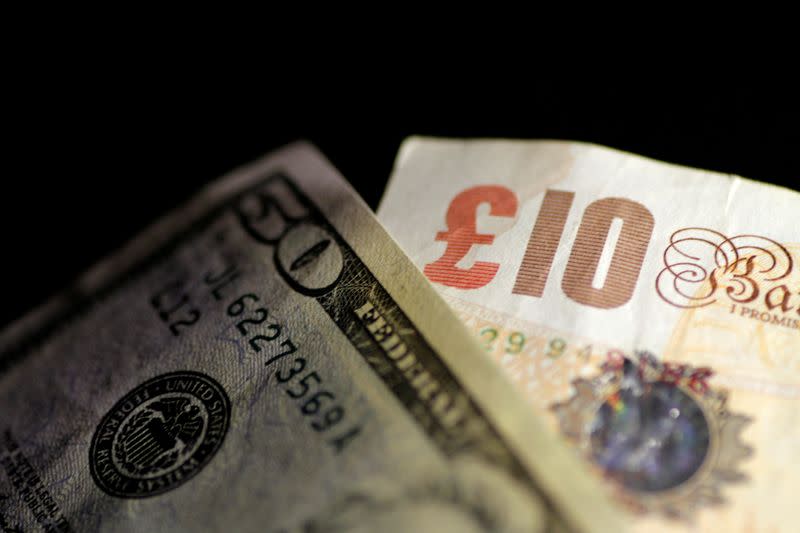Sterling weakens after business activity data points to recession

By Joice Alves
LONDON (Reuters) - Sterling fell against the euro and the U.S. dollar on Thursday after business data highlighted the likelihood that Britain is already in recession.
The S&P Global/CIPS UK Services Purchasing Managers' Index (PMI) for December was revised slightly lower. While it marked an improvement from November's reading, new business contracted for a second month running and the survey's employment index fell to its lowest level since February 2021.
The pound was 0.44% weaker against the euro at 88.33 pence at 1125 GMT, and was set for its biggest daily decline since December 21. It fell 0.33% versus the U.S. dollar to $1.2019.
"I think there's a lot of pessimism about the UK, and I think this is hanging over from last year. If we look at the fundamentals, they haven't changed an awful lot from last year. We've got an economy which is almost certainly in recession (and) we've got this long legacy now of low productivity, no investment growth," said Jane Foley, head of FX strategy at Rabobank in London.
"I think it's difficult for the market to become enthusiastic about sterling. It is easier to sell the pound than to buy it."
The survey came a day after Prime Minister Rishi Sunak promised to tackle Britain's most serious problems, with pledges to halve inflation, grow the economy and reduce debt.
The Times reported that Sunak is poised to announce legislation to curb strikes as Britain is facing a wave of strikes in various sectors including the rail network as surging inflation follows more than 10 years of stagnant wage growth, leaving many workers unable to make ends meet.
(Reporting by Joice Alves and Harry Robertson)

 Yahoo Finance
Yahoo Finance 